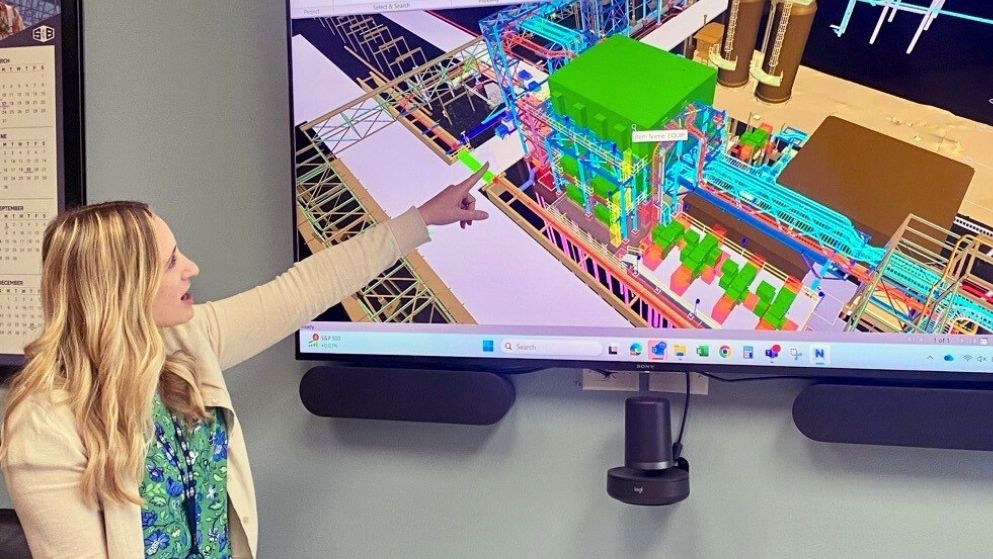With three decades of experience at S&B, James Johnson has become a key leader in the pulp and paper industry, specializing in control system upgrades and optimization. Based in West Monroe, Louisiana, James leads a team focused on modernizing outdated systems, improving operational efficiency and delivering seamless upgrades for customers. In this Q&A, James shares insights into his background, current role and the evolving trends shaping control systems in the pulp and paper sector—highlighting how early collaboration and deep expertise make a lasting impact.
Q: Tell us about your background—when did you join S&B?
A: I've been with S&B for 30 years leading numerous projects in our pulp and paper operations. I grew up in North Little Rock, Arkansas and earned my degree in electrical engineering from Louisiana Tech University. After graduation, I started working at Ford Bacon & Davis, which is now part of S&B. I started out as a junior electrical engineer and worked in a variety of different roles over the years, such as instrumentation & controls engineer, project lead and office I&E lead.
Q: What's your current role, and what does your team focus on?
A: I'm the department manager for instrumentation, electrical and controls for our Southeast Region. My team and I manage control system upgrades, particularly in the pulp and paper operations. We've developed extensive expertise in upgrading systems, especially those involving the replacement of obsolete equipment and optimizing newer control systems.
Q: Control systems are critical in pulp and paper operations. How does S&B support its customers in this segment?
A: Control systems manage the entire pulp and paper process—from monitoring pressure and temperature to controlling motors and valves. Many mill systems are outdated, with some almost 30 years old. When upgrading a system, we are focused on making it a seamless process for our customers. It’s not just about replacing old hardware, but it’s also an opportunity to find ways to improve control of the process, operator efficiency and reduce risks.
Q: What's involved in a control system upgrade?
A: These highly detailed projects often include replacing the control system and wiring. The upgrade demands a lot of fieldwork and engineering design. Final installation often has to occur in a tight schedule. We work around the clock, setting up day and night shifts to ensure that the installations go smoothly, and that production can resume on schedule for our customers.
Q: Are there any trends you've seen regarding control systems in the pulp and paper industry?
A: I’ve noticed a big trend in optimizing and modernizing systems rather than simply replacing old equipment. When customers must upgrade equipment, they now have to consider ways to enhance their operations. For example, we've seen a shift toward using high-performance graphics in control rooms, which helps operators focus on critical issues rather than getting overwhelmed by unnecessary alarms. This approach improves efficiency and safety.
Q: What is the benefit of bringing an EPC in at an early stage of planning?
A: Early involvement allows us to assist customers in finding different approaches to optimize their systems as opposed to having old hardware replaced. We also evaluate what they now have, but don't need, for their control systems to help them "right-size" the project. Older control systems may contain obsolete code or underutilized inputs/outputs from nonfunctional equipment. We can clear that up and by getting involved early, ensure that the customer is only replacing what's necessary. Often, it ends up being more efficient and cost-effective for them in the long run.
Q: Any final thoughts on your team's work at S&B?
A: In addition to our team in West Monroe, we have resources across the company that allows us to handle complex projects from start to finish. Our services include more than delivering upgrades. We provide expertise and support throughout the process, ensuring our customers get the best possible outcome.
To learn more about S&B's industrial expertise and work supporting the pulp and paper industry, visit our Pulp & Paper page.



